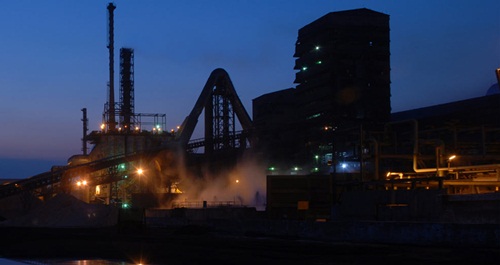The Supreme Court has upheld a Madras High court decision and agreed to Tamil Nadu's government’s plea in favour of keeping the polluting plat shut. The apex court also ruled that also that the National Green Tribunal (NGT) does not have the authority to repeal the government order against Sterlite.
The SC decision comes as a big blow to mining giant Vedanta whose Sterlite Copper plant in Thoothukudi has been idling for more than two years after it was forced to close its smelter following violent protests by local residents that left several dead.
The Supreme Court agreed to Tamil Nadu's argument that the National Green Tribunal (NGT) does not have the authority to repeal the government order against Sterlite. The court also directed the plant to take its plea to re-open the smelter, to the Madurai bench of the Madras High Court.
The National Green Tribunal on 15 December overruled the Tamil Nadu Pollution Control Board's (TNPCB) closure and directed restoration of electricity to the smelter. The NGT held that the state government’s decision to shut the smelter plant was not sustainable and did not justify the impugned orders.
The tribunal's stand was in line with that of the three-member committee constituted to probe the closure of the copper plant.
Following this the state government approached the Supreme Court questioning the validity of the NGT's judgement and to prove that Sterlite had violated environmental norms.
"The Supreme court has that the NGT does have the jurisdiction to interfere in the Tamil Nadu Government's order or even form a committee to address the issue," confirms a source in the TNPCB. "We have been maintaining that the NGT didn't have authority from the very beginning. This is a huge victory for Tamil Nadu," reports quoted TNPCB sources as saying.
The TNPCB argued in Supreme Court that the pollution levels of the groundwater in and around Vedanta group's Sterlite copper smelting plant in the state was very high and that there was no remedy to restore it to permissible levels.
Describing the situation as "unfortunate", senior counsel CA Vaidyanathan told the bench of Justice Rohinton Fali Nariman and Justice Navin Sinha that the "desirable level of water is 500 TDS and the permissible level is 2000 TDS but what is prevailing today is 15,000 to 20,000 TDS".
Defending the decision to close down the plant permanently, Vaidyanathan said that they have evidence that the groundwater has been contaminated because of the pollutants from the plant.
He further questioned the jurisdiction of the green tribunal to deal with the matter, and said, "the green tribunal could not have constituted a committee for going into the issue. That is not contemplated under the NGT Act. Adjudicating powers can't be delegated."
The counsel for Sterlite argued that the State government has given it a bad name and that the pollution report that was shown to the court was six months after the plant was put under lock.
Describing the action against the plant as "political", senior counsel CA Sundaram appearing for Vedanta, said that the state government overlooked the plea for daily maintenance to plug the sulphuric acid leaks.
Vedanta also pointed out that unless electricity to the plant was restored, it would not be able to comply with the conditions imposed by the National Green Tribunal in its 15 December 2018 judgment.
The Tamil Nadu government, however, stated that the plant management resorted to quick fixes when the environmental violations were pointed out to them.
Defending the May 2018 order putting the plant under lock, senior counsel KV Vishwanathan said that the decision was based on sound reasons.
Justifying its decision not to grant consent to operate to Sterlite Copper Smelter plant, the Tamil Nadu government pointed out that Sterlite, failed to furnish groundwater analysis report, remove copper slag stored along the River Uppar and not constructing physical barrier between the river and the slag. The company was not authorised to generate and dispose hazardous waste and the unit has not analysed parameters of heavy metals in the ambient air quality. Further, the unit failed to construct gypsum pond as per CPCB guidelines.




















